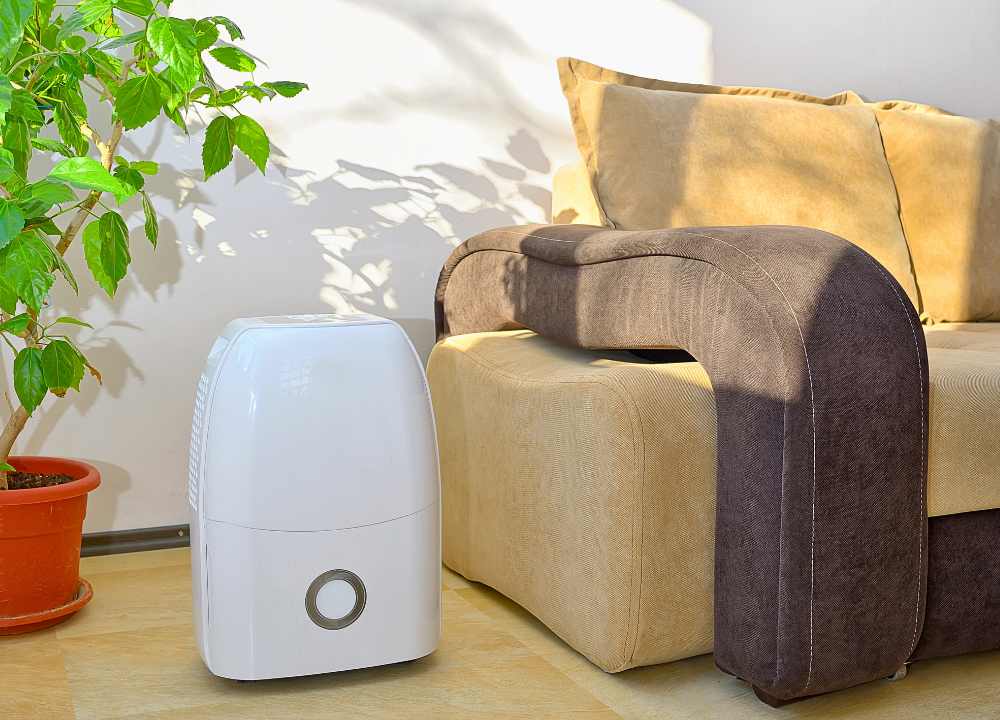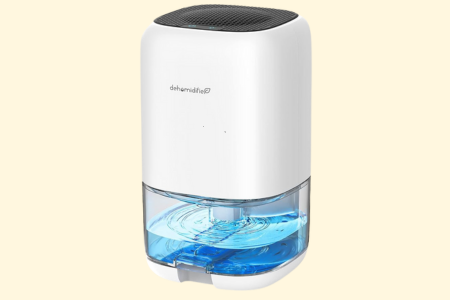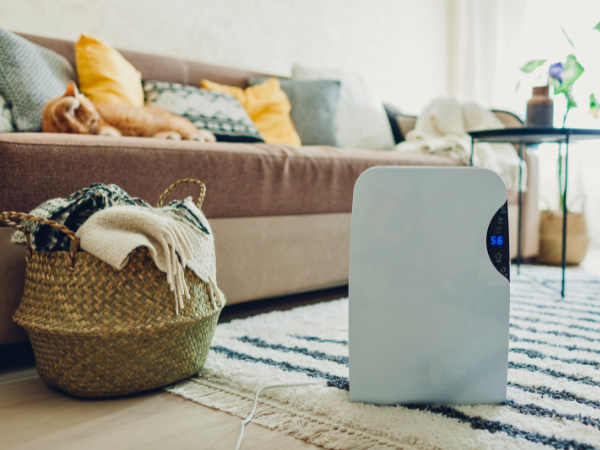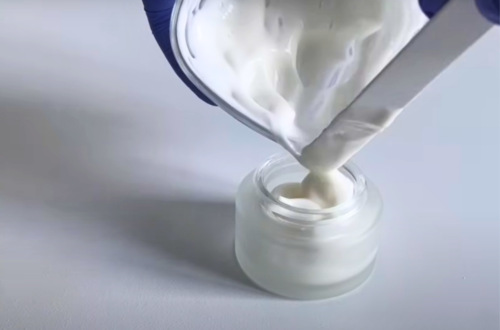
What Does a Dehumidifier Do for Your Health: 6 Key Benefits
A dehumidifier reduces excess moisture in the air, which can improve respiratory health and prevent mold growth. It creates a healthier living environment.
High humidity levels can cause numerous health issues, including allergies, asthma, and respiratory infections. By using a dehumidifier, you can maintain optimal indoor humidity levels, promoting better respiratory health.
Dehumidifiers also help prevent the growth of mold, mildew, and dust mites, which thrive in moist environments and can worsen allergies or asthma.
Introduction To The Health Benefits Of A Dehumidifier
In this guide, we’ll explore what a dehumidifier does for your health and discuss six key benefits it offers.
Why Managing Humidity Matters For Your Health
Managing humidity levels in your home is crucial for various reasons. Excess moisture in the air can lead to a plethora of health issues, especially for those with respiratory problems. Here’s why controlling humidity is vital:
- Prevents Mold Growth: Mold thrives in damp conditions. This can lead to allergies and respiratory problems.
- Reduces Dust Mites: Dust mites prefer humid environments. Lowering humidity levels can reduce their population.
- Improves Air Quality: Dry air is easier to breathe and reduces the risk of asthma attacks.
Let’s break this down in a table for better understanding:
| Health Issue | Effect of High Humidity | Benefit of Dehumidifier |
|---|---|---|
| Allergies | Increases allergen levels | Reduces allergens |
| Asthma | Triggers attacks | Improves breathing |
| Skin Conditions | Causes irritation | Relieves symptoms |
High humidity levels can also make it difficult for your body to cool down. This can lead to heat exhaustion and other heat-related illnesses. By using a dehumidifier, you can maintain an optimal humidity level, making your home more comfortable and healthier.
TABYIK Dehumidifier: One of the best-selling on the market

1. Reduces Allergy Symptoms
One of the most significant health benefits is their ability to reduce allergy symptoms. By maintaining optimal humidity, dehumidifiers help create a healthier living environment.
How Lower Humidity Helps Control Allergens
Lower humidity levels are essential for controlling allergens in your home. Dust mites, mold, and mildew thrive in high-humidity environments. By using a dehumidifier, you can keep humidity levels below 50%, which is less favorable for these allergens.
Here are some key points on how lower humidity helps:
- Dust mites – These tiny creatures thrive in humid conditions. Lowering humidity reduces their population.
- Mold and Mildew – These fungi need moisture to grow. Dehumidifiers reduce the moisture, thus preventing their growth.
- General Air Quality – Lower humidity improves overall air quality, making it easier to breathe.
Below is a table that highlights the ideal humidity levels for controlling common allergens:
| Allergen | Ideal Humidity Level |
|---|---|
| Dust Mites | 30-50% |
| Mold | 30-50% |
| Mildew | 30-50% |
Benefits For People With Dust And Pollen Sensitivities
People with dust and pollen sensitivities often struggle with symptoms like sneezing, runny nose, and itchy eyes. Dehumidifiers help by reducing the moisture that dust mites need to survive. This can significantly decrease the number of dust mites in your home.
Here are some benefits for those with dust and pollen sensitivities:
- Fewer Dust Mites – Lower humidity levels mean fewer dust mites, which can reduce allergy symptoms.
- Less Mold Growth – Mold spores can trigger allergies. Dehumidifiers help prevent mold, reducing these triggers.
- Better Sleep – Reducing allergens leads to better air quality, which can improve sleep quality.
- Improved Respiratory Health – Clean, dry air is easier to breathe, helping those with asthma or other respiratory issues.
Using a dehumidifier can greatly improve the quality of life for allergy sufferers by providing a more comfortable and healthier indoor environment.
2. Prevents Mold And Mildew Growth
Using a dehumidifier can help maintain optimal humidity levels in your home, which in turn prevents mold and mildew growth.
The Dangers Of Mold In Humid Environments
Mold thrives in damp, humid areas, posing significant health risks. Exposure to mold spores can cause respiratory issues, allergies, and even severe infections. Here are some dangers associated with mold in humid environments:
- Respiratory Problems: Mold spores can irritate your lungs, leading to symptoms like coughing, wheezing, and shortness of breath.
- Allergic Reactions: Many people are allergic to mold spores, which can cause sneezing, runny nose, and itchy eyes.
- Asthma Attacks: For asthma sufferers, mold exposure can trigger severe attacks, making it difficult to breathe.
- Skin Irritations: Direct contact with mold can cause rashes and other skin issues.
It’s essential to understand the severity of these issues. Mold can grow on walls, ceilings, carpets, and even furniture. Regular exposure to mold can weaken your immune system over time, making you more susceptible to other illnesses.

3. Improves Respiratory Health
One of the most significant advantages is improved respiratory health. By regulating indoor humidity levels, a dehumidifier can help you breathe easier and enhance overall well-being.
Asthma And Breathing Issues Linked To Humidity
High humidity levels can make it hard to breathe, especially for those with asthma. Excess moisture in the air can lead to the growth of mold and dust mites, which are common triggers for asthma attacks. For people with respiratory issues, maintaining an optimal humidity level is crucial.
A study showed that controlling indoor humidity can reduce asthma symptoms significantly. The ideal humidity level for indoor spaces is between 30% and 50%. By using a dehumidifier, you can achieve this balance and reduce the risk of respiratory issues.
| Humidity Level | Impact on Health |
|---|---|
| Above 50% | High risk of mold and dust mites |
| 30% – 50% | Optimal for respiratory health |
| Below 30% | Air may become too dry |
Maintaining the right humidity level helps people with asthma breathe easier. It also reduces the number of allergens in the air, making the environment healthier.
Why Dry Air Is Easier To Breathe
Dry air is generally easier to breathe compared to humid air. Moisture in the air can make it feel heavy and thick. This can make breathing difficult, especially for those with respiratory issues.
Here are some reasons why dry air is easier to breathe:
- Reduced Allergen Levels: Dry air has fewer allergens like mold and dust mites. This makes it safer for people with allergies.
- Improved Oxygen Uptake: Dry air allows for better oxygen exchange in the lungs. This makes breathing more efficient.
- Less Condensation: With lower humidity, there’s less chance of condensation forming. This reduces mold growth.
A dehumidifier helps maintain dry air at home. This can lead to better respiratory health. It can also provide relief from conditions like asthma and bronchitis.
In summary, using a dehumidifier can significantly improve respiratory health. It helps control humidity levels, reduces allergens, and makes the air easier to breathe. This creates a healthier living environment for everyone.
4. Promotes Better Sleep Quality
By controlling humidity levels in your bedroom, a dehumidifier can help you sleep more soundly and wake up feeling refreshed. Let’s explore how it works.
How Humidity Affects Your Sleep Patterns
High humidity can disrupt your sleep. Excess moisture in the air can make it difficult to regulate body temperature, leading to discomfort and restlessness. Here’s how high humidity affects your sleep patterns:
- Increases Body Temperature: Your body struggles to cool down, making it hard to fall asleep.
- Causes Sweating: Excessive sweating can lead to dehydration and disturbed sleep.
Creating An Ideal Sleep Environment With A Dehumidifier
A dehumidifier helps create the perfect sleep environment by maintaining ideal humidity levels. Here’s how you can use a dehumidifier to improve sleep:
- Set the Dehumidifier to Optimal Levels: Aim for 30%-50% humidity. Most dehumidifiers come with built-in hygrometers to help you monitor and adjust settings.
- Place the Dehumidifier Properly: Position it in a central location in your bedroom for even air circulation.
- Regular Maintenance: Clean the water tank and filters regularly to ensure efficient operation.
Creating an ideal sleep environment involves more than just using a dehumidifier. Combine it with other sleep hygiene practices like keeping your room dark, quiet, and cool for the best results.
By understanding how humidity affects sleep and using a dehumidifier, you can significantly enhance your sleep quality and overall health.
5. Protects Your Skin From Irritation
High humidity can lead to various skin problems. A dehumidifier can help you maintain healthy, balanced skin.
Why Humidity Can Cause Skin Problems
High humidity levels can wreak havoc on your skin. Excess moisture in the air can make your skin feel sticky and greasy. This can lead to blocked pores, causing acne and other skin issues. Humidity can also cause eczema flare-ups and other skin irritations.
Let’s look at some specific ways humidity can harm your skin:
- Triggers Eczema: High humidity can trigger eczema, leading to itchy, inflamed skin.
Studies show that skin problems are more common in humid climates. Humidity makes it harder for your skin to regulate itself. This can lead to long-term skin damage.
Maintaining Healthy Skin With Balanced Humidity
A dehumidifier helps you keep your home’s humidity levels in check. Balanced humidity is key to maintaining healthy skin.
Here’s how balanced humidity helps your skin:
- Minimizes Eczema Flare-Ups: Balanced humidity helps keep eczema under control.
Using a dehumidifier can make a big difference. Your skin will feel less sticky and greasy. You’ll notice fewer breakouts and irritations. A dehumidifier helps create a comfortable environment for your skin.
Investing in a dehumidifier is a simple way to protect your skin. Balanced humidity leads to healthier, happier skin.
6. Reduces Musty Odors In The Home
Musty odors can make your home feel unwelcoming and unpleasant. These smells often indicate excess moisture in the air. Using a dehumidifier can help eliminate these odors.
Odors As A Sign Of Poor Air Quality
Musty odors in your home are more than just an annoyance. They signal poor air quality. This can affect your health. Mold, mildew, and dust mites thrive in humid conditions. These can trigger allergies and asthma.
Here are some key signs of poor air quality due to high humidity:
- Persistent musty smells
- Visible mold or mildew
- Condensation on windows
- Warped or rotting wood
Addressing these issues with a dehumidifier can improve air quality. This reduces the risk of respiratory problems. It also makes your home more comfortable.
A dehumidifier works by extracting excess moisture from the air. This lowers humidity levels. As a result, mold and dust mites have a harder time surviving. This directly impacts the air you breathe, making it cleaner and healthier.
How A Dehumidifier Enhances Overall Comfort
Using a dehumidifier does more than just remove musty odors. It enhances overall comfort in your home. Lower humidity levels make the air feel cooler and less sticky. This can be especially beneficial in the summer.
Here’s how a dehumidifier can improve your living conditions:
- Reduces sticky and clammy feelings
- Improves HVAC efficiency
- Protects your furniture and belongings
For example, high humidity can damage wood furniture. It can also cause paint to peel. By reducing humidity, a dehumidifier helps preserve your home and its contents. This adds to your comfort and peace of mind.
Additionally, lower humidity levels can make it easier to breathe. This is particularly important for those with allergies or asthma. Cleaner, drier air can reduce symptoms and improve overall health.
Investing in a dehumidifier is a simple way to improve your home’s air quality. It reduces musty odors and enhances comfort. This makes your home a healthier place to live.
Is it worth using dehumidifiers in the winter?
Yes, if your home experiences excess moisture during winter, using a dehumidifier can help prevent mold, mildew, and dampness, especially in poorly ventilated areas.
How do I know if my dehumidifier is working?
You’ll notice reduced humidity levels on the unit’s display or a hygrometer, water collecting in the tank, and overall improvements in air quality, such as less dampness or musty odors.
What causes a dehumidifier to freeze up?
A dehumidifier can freeze up if the ambient temperature is too low, typically below 65°F, or if there’s restricted airflow due to clogged filters or blocked vents.




